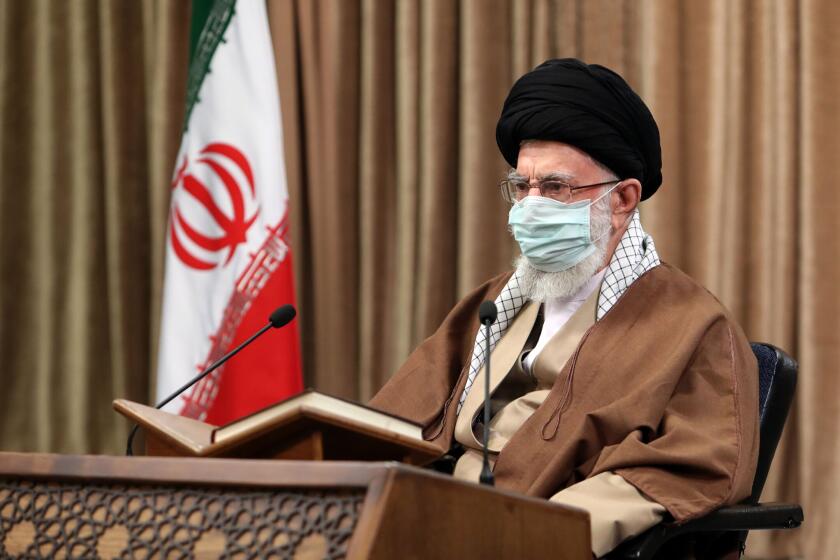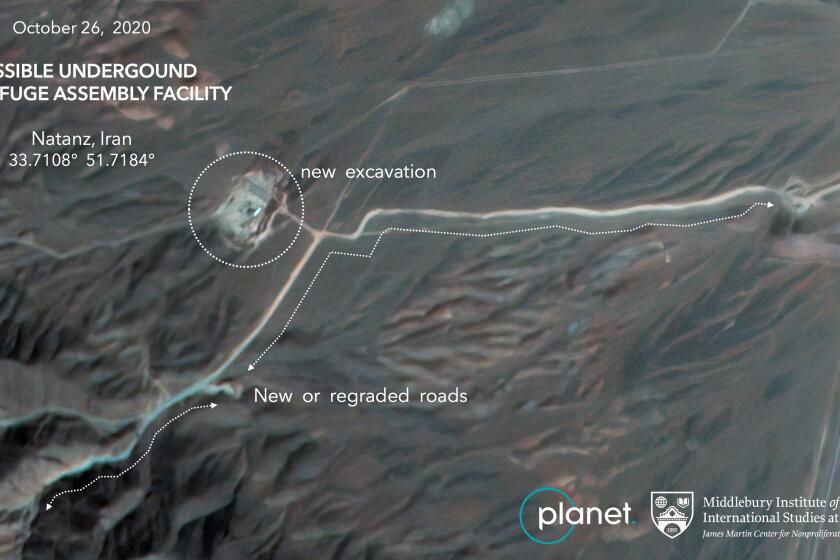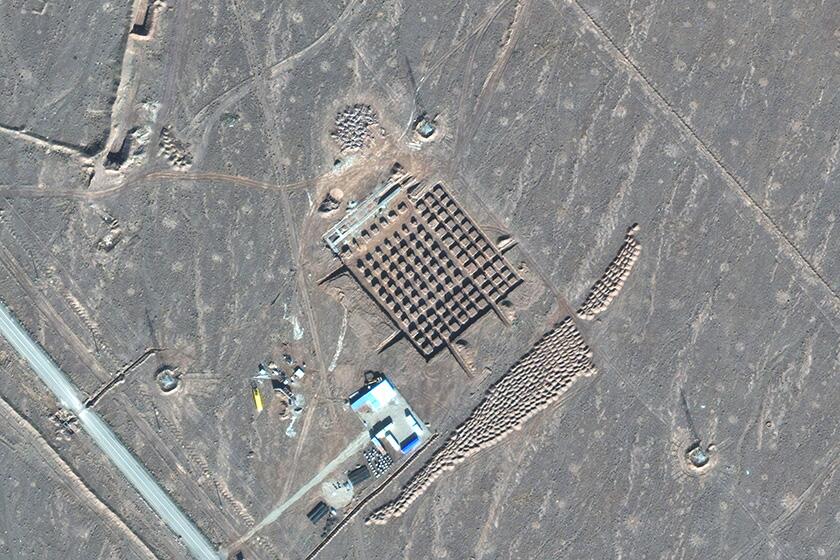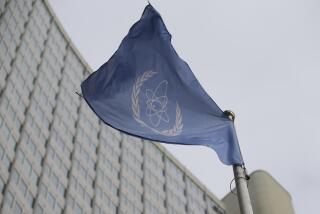Iran starts enriching uranium at 60%, its highest level ever
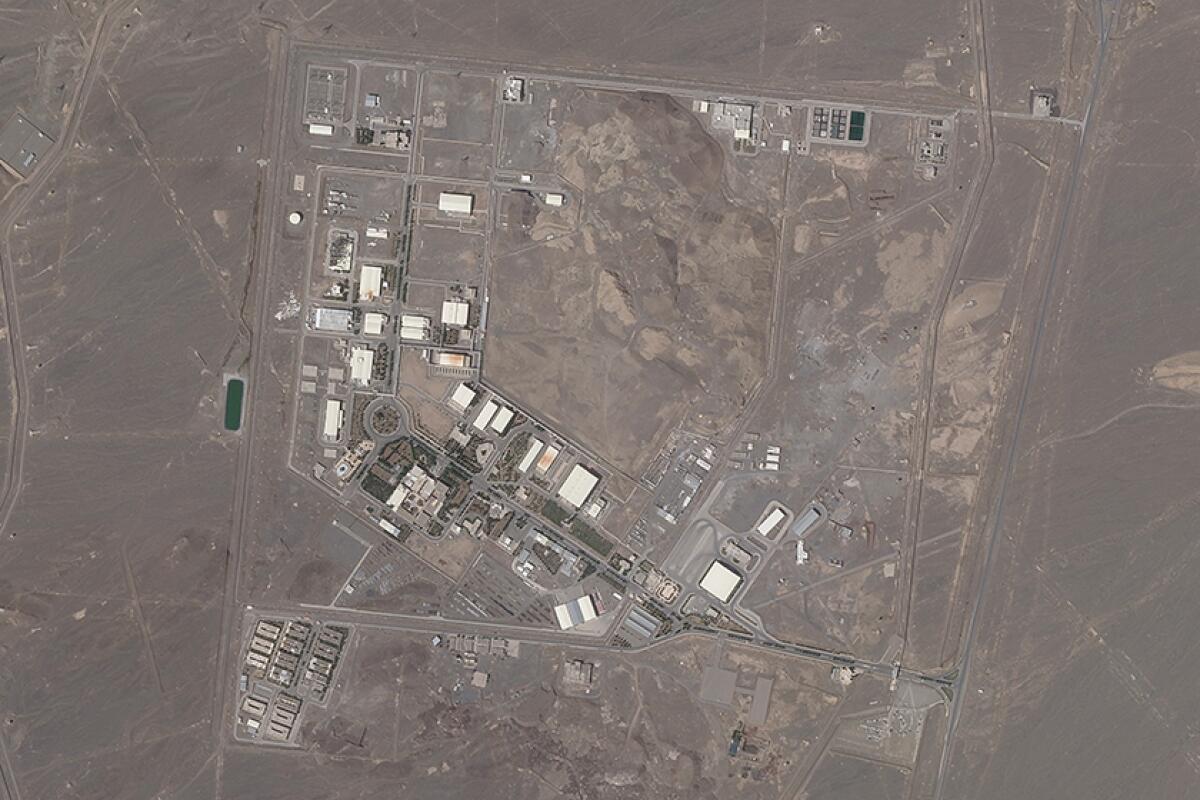
DUBAI, United Arab Emirates — Iran began enriching uranium Friday to its highest level ever, edging closer to weapons-grade levels to pressure talks in Vienna aimed at restoring its nuclear deal with world powers after an attack on its main atomic site.
A top official said only a few grams an hour of uranium gas would be enriched up to 60% purity — triple the former purity level but at a rate far slower than what Tehran could produce. International inspectors already said Iran planned to do the work above-ground at its Natanz nuclear site, not deep within underground halls fortified to withstand airstrikes.
The move is likely to raise tensions even as Iran negotiates in Vienna over a way to allow the U.S. back into the agreement and lift the crushing economic sanctions it faces. However, its scope also provides Iran with a way to quickly de-escalate if it chooses.
The announcement also marks a significant escalation after the sabotage that damaged centrifuges, an attack this past weekend suspected of having been carried out by Israel. While Israel has yet to claim responsibility, the country is widely suspected of having carried out the still-unexplained sabotage at Natanz, Iran’s main enrichment site.
Mohammad Bagher Qalibaf, Iran’s parliament speaker, announced the move in a Twitter post later acknowledged by state television.
“The young and God-believing Iranian scientists managed to achieve a 60% enriched uranium product,” Qalibaf said. “I congratulate the brave nation of Islamic Iran on this success. The Iranian nation’s willpower is miraculous and can defuse any conspiracy.”
Iran’s supreme leader says the offers being made at the Vienna talks over his country’s tattered nuclear deal ‘are not worth looking at.’
The head of the Atomic Energy Organization of Iran, the country’s civilian nuclear arm, also acknowledged the move to 60%, according to state TV. Ali Akbar Salehi said the centrifuges now produce nine grams an hour, but that would drop to five grams an hour in the coming days.
“Any enrichment level that we desire is in our reach at the moment, and we can do it at any time we want,” Salehi said.
State TV later referred to the decision as a “show of power against terrorist rascality.” Mahmoud Vaezi, chief of staff for Iran’s president, similarly said the move sent the message that Iran’s atomic program ”will not be stopped through the assassination of nuclear scientists and sabotage in nuclear facilities.”
It wasn’t clear why the first announcement came from Qalibaf, a hard-line former leader in the paramilitary Revolutionary Guard who has already been named as a potential presidential candidate in Iran’s June election.
President Biden’s dilemma on the Iran nuclear deal: Go slow and risk war, or move fast even if it means an imperfect pact that hurts his domestic agenda.
While 60% is higher than any level Iran previously enriched uranium, it is still lower than weapons-grade levels of 90%.
Iran had been enriching up to 20% purity, and even that was a short technical step to weapons grade. The deal limited Iran’s enrichment to 3.67%
The move could inspire a further response from Israel amid a long-running shadow war between the nations.
Israeli Prime Minister Benjamin Netanyahu has vowed never to allow Tehran to obtain a nuclear weapon, and his country has twice preemptively bombed Mideast nations to stop their atomic programs.
Breaking News
Get breaking news, investigations, analysis and more signature journalism from the Los Angeles Times in your inbox.
You may occasionally receive promotional content from the Los Angeles Times.
Iran insists its nuclear program is peaceful, though the West and the International Atomic Energy Agency say Tehran had an organized military nuclear program up until the end of 2003. An annual U.S. intelligence report released Tuesday maintained the American assessment that “Iran is not currently undertaking the key nuclear weapons-development activities that we judge would be necessary to produce a nuclear device.”
Iran previously had said it could use uranium enriched up to 60% for nuclear-powered ships. However, the Islamic Republic currently has no such ships in its navy.
The threat of higher enrichment by Iran already had drawn criticism from the U.S. and three European nations in the tattered nuclear deal — France, Germany and Britain. On Friday, European Union spokesman Peter Stano called Iran’s decision “a very worrisome development.”
“There is no credible explanation or civilian justification for such an action on the side of Iran,” Stano said. The Vienna talks aim to “make sure that we go back from such steps that bring Iran further away from delivering on its commitments and obligations.”
Iran has begun construction at its underground nuclear facility at Fordo amid tensions with the U.S. over its atomic program, satellite images show.
Diplomats reconvened Friday for the talks in the Austrian capital. After Thursday’s sessions, Chinese negotiator Wang Qun called for doing “away with all disruptive factors by moving forward as swiftly as we can on the work of negotiations, especially by zeroing in on sanction-lifting.”
The 2015 nuclear deal, from which former President Trump unilaterally withdrew the U.S. in 2018, prevented Iran from stockpiling enough high-enriched uranium to be able to pursue a nuclear weapon if it chose in exchange for the lifting of economic sanctions.
The weekend attack at Natanz was initially described only as a blackout in the electrical grid feeding both its above-ground workshops and underground enrichment halls, but later, Iranian officials began calling it an attack by Israel.
Alireza Zakani, the hard-line head of the Iranian parliament’s research center, referred to “several thousand centrifuges damaged and destroyed” in a state TV interview. However, no other official has offered that figure, and no images of the aftermath have been released.
More to Read
Sign up for Essential California
The most important California stories and recommendations in your inbox every morning.
You may occasionally receive promotional content from the Los Angeles Times.
